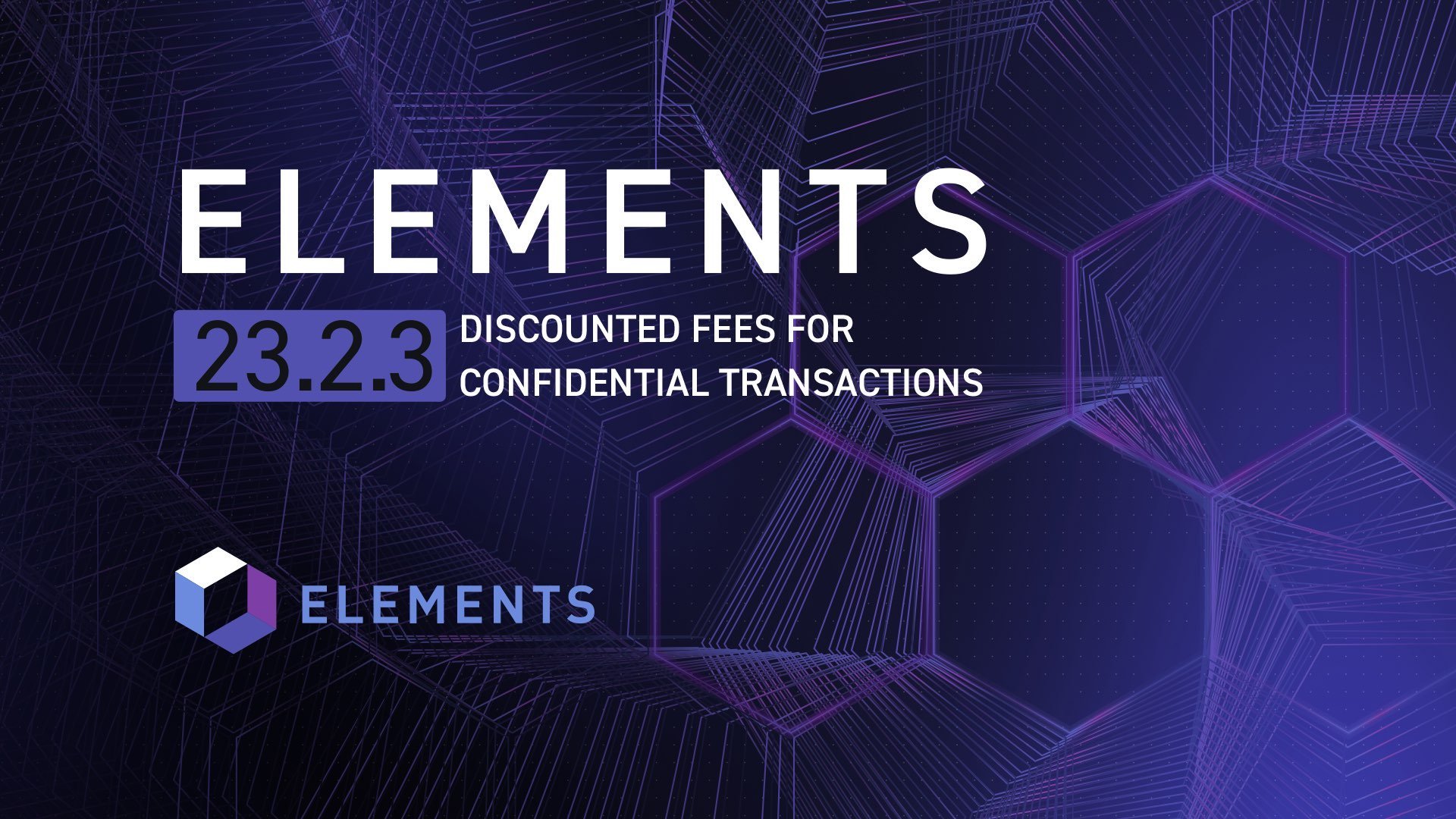The latest release of the open-source software that underpins Liquid and other Elements-based sidechains is now available for download.
In release 23.2.3, we added initial support for discounted fees for Confidential Transactions (CT), reducing fees by nearly 90%. (PR #1317). For instance, a transaction that used to pay around 250 sats in fees, now will pay around 25 sats, close to what it would be on a non-CT transaction.
We restored full functionality to the trim_headers command (PR # 1270) and removed the constraints on liquidv1 peg-out Bitcoin descriptors to provide greater flexibility for peg-out operations (PR #1294).
The new release also adds several fixes to improve overall network stability and performance. One change is we updated getpeginaddress so that it does not supply a potentially old peg-in address during the initial block download (IBD) (PR #1327). Another notable fix is the increased default stack size allocated to Qt, ensuring Elements runs smoothly on Apple silicon devices (PR #1342).
As always, feel free to explore the finer details of the release by reviewing the full changelog. Also, be sure to let us know your thoughts on the new updates and what you would like to see next in the Liquid developer forum or chat.
ELIP 200: Discounted Fees for Confidential Transactions
Blockstream's role as Liquid's technical provider involves developing software tailored to the needs of the Liquid Federation. This is done through proposals directly from the Technology Board, Elements Improvement Proposals (ELIPs), or a combination of both. This process ensures that any changes to the protocol are well-documented and thoroughly discussed by the Federation, urging transparency and collaboration.
One such proposal is ELIP 200, which offers a discounted size for Confidential Transactions (CT), making their fees much lower. It also makes the necessary changes on a network level to relay and mine these discounted transactions.
Typically, CT are about ten times larger than regular, unblinded transactions in Elements. Due to their larger size, CT require an order of magnitude higher transaction fee. Under the new fee policy change in ELIP 200, CT weight and virtual size are discounted, making their fees more closely aligned with unblinded transactions at the same fee rate. This update makes Liquid’s private transactions even more economical, particularly when stacking bitcoin in high-fee environments, swapping to Lightning, or sending cross-border stablecoin remittances.
The ELIP 200 implementation is now merged in the release of Elements 23.2.3. This makes the new fee policy active for relay on Liquid testnet, so Liquid wallets and platforms can start integration and testing. Wallets can follow the specified implementations and test vectors for exact discount calculations. Testnet nodes will need to specify creatediscountct=1 in their config to enable the Elements node wallet to create discount CT as well.
Liquid Developer Update
We have continued to make progress on our developer advocacy initiative, collaborating with Liquid members to offer new education resources like Elements Academy and tools like Spirit of Satoshi, all aimed at making it easier to build on Liquid.
This initiative recently culminated in the release of the Liquid Wallet Kit (LWK), a powerful toolkit for building Liquid wallet applications. Although still in its early stages, LWK is having an impact, with wallets such as BancoLibre, Bull Bitcoin, and Sats Sails, utilizing it in their stack.
We have also made some progress on extending LWK capabilities and adding new features based on your feedback. We recently added support for unblinded outputs and wallet-draining capabilities, new Swift bindings, a react native module, and released a new demo of a Liquid web wallet with Jade multisig and watch-only support.
Liquid members have continued to play a significant role in expanding LWK capabilities too, with the addition of new languages and implementations, such as the Dart/Flutter bindings from Bull Bitcoin and the new Liquid SDK from Breez. We encourage other developers to build on their momentum and contribute to LWK.
Finally, for those interested in learning more about making changes to the Elements protocol itself, submitting ELIPs is as simple as opening a PR to the official repository. We encourage developers to discuss proposals and share ideas on the Liquid Build On L2 forum and Liquid developer Telegram channel.
